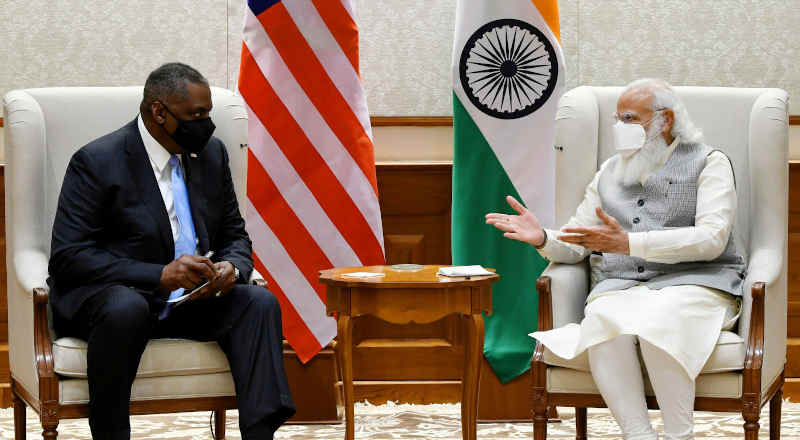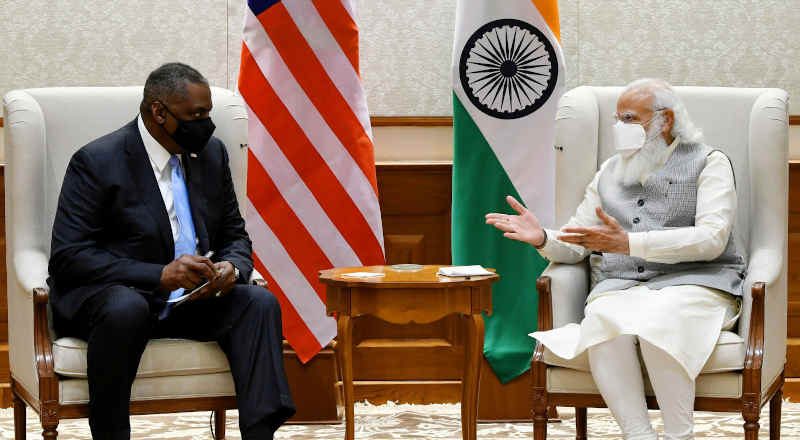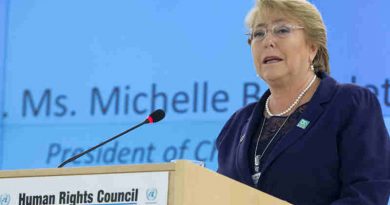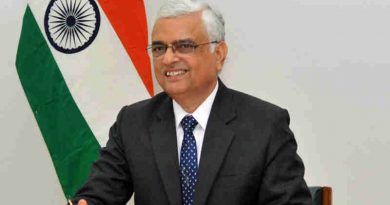India, U.S. to Strengthen Bilateral Defence Cooperation

By RMN News Service
U.S. Secretary of Defense Lloyd James Austin III, who is on an official visit to India, called on India’s Prime Minister Narendra Modi on Friday (March 19) in New Delhi.
Secretary Austin conveyed greetings of President Biden to Modi, who welcomed the close relationship between the two countries, which is supposed to be rooted in shared values of democracy, pluralism, and commitment to a rules-based order.
Austin’s visit has come at a crucial time when the U.S. is strongly criticizing the increasing cases of human rights violations in India. Just before Austin’s India journey, U.S. Senators Bob Menendez and Chuck Schumer had called on the Biden administration to further engage with Modi’s government over its treatment of farmers in India who have been peacefully demonstrating against the passage of new farming laws.
As India has lost its status of a democracy, the world leaders are accusing PM Modi for his autocratic actions against the people of India. With extreme corruption, human rights violations, and disrespect for the rule of law under the Modi regime, India has become a veritable dictatorship state like North Korea, Russia, or China.
While Modi is inspired by the despotic tendencies of the former U.S. President Donald Trump, it seems that the Biden administration has decided to tame Modi who is behaving as a Trump clone. In his call with Modi on February 8, President Joe Biden made it clear that he wants India to respect democratic values, which have vanished during the past 6 years of Modi’s rule in India.
In his meeting with Secretary Austin, Modi outlined his vision for the strategic partnership between the two countries and emphasized the important role of bilateral defence cooperation in India-U.S. ties. He requested Secretary Austin to convey his best wishes to President Biden.
Secretary Austin reiterated the U.S. Government’s continued commitment towards strengthening the bilateral defence relations between the two countries. He expressed his country’s strong desire to further enhance the strategic partnership for peace, stability, and prosperity in the Indo-Pacific region and beyond.






